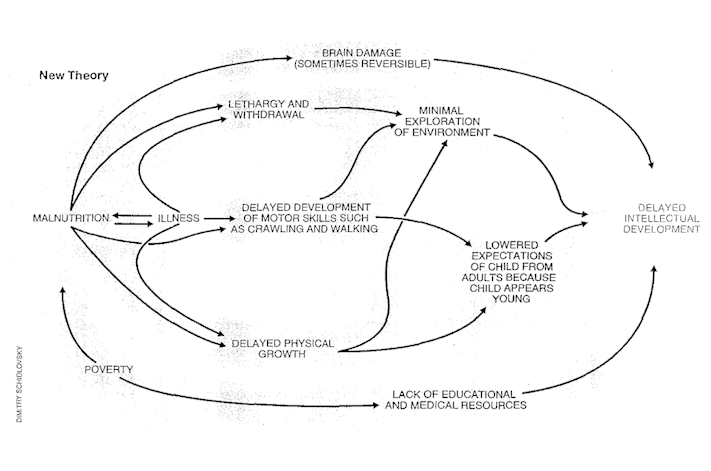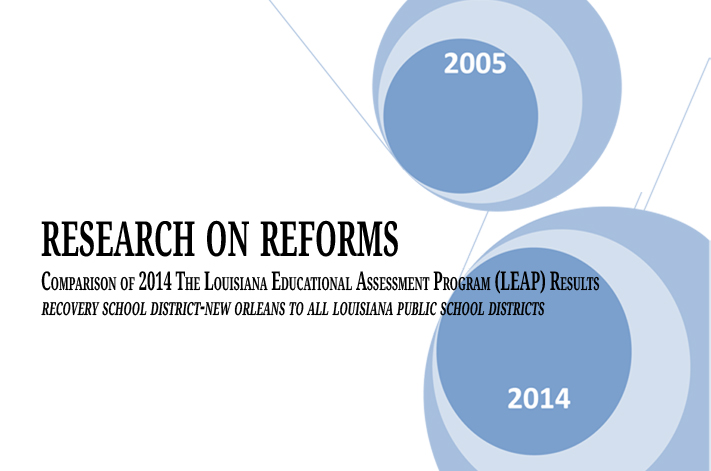Project Description
Research into childhood nutrition reveals that poor diet influences mental development in more ways than expected. Other aspects of poverty exacerbate the effects.
The prevalence of malnutrition in children is staggering. Globally, nearly 195 million children younger than five years are undernourished.
Malnutrition is most obvious in the developing countries, where the condition often takes severe forms; images of emaciated bodies in famine-struck or war-torn regions are tragically familiar. Yet milder forms are more common, especially in developed nations. Indeed, in 1992 an estimated 12 million American children consumed diets that were significantly below the recommended allowances of nutrients established by the National Academy of Sciences.
Undernutrition triggers an array of health problems in children, many of which can become chronic. It can lead to extreme weight loss, stunted growth, weakened resistance to infection and, in the worst cases, early death. The effects can be particularly devastating in the first few years of life, when the body is growing rapidly and the need for calories and nutrients is greatest.
Inadequate nutrition can also disrupt cognition-although in different ways than were previously assumed. At one time, underfeeding in childhood was thought to hinder mental development solely by producing permanent, structural damage to the brain. More recent work, however, indicates that malnutrition can impair the intellect by other means as well. Furthermore, even in cases where the brain’s hardware is damaged, some of the injury may be reversible. These new findings have important implications for policies aimed at bolstering achievement among underprivileged children.
Scientists first investigated the link between malnutrition and mental performance early in this century, but the subject did not attract serious attention until decades later. In the 1960s increasing evidence of undernutrition in industrial countries including the U.S. along with continuing concerns in other developing countries prompted research to examine the lasting effects of food deprivation. A number of studies in Latin America, Africa and the U.S. reported that on intelligence tests children with a history of malnutrition attained lower scores than children of similar social and economic status who were properly nourished. These surveys had various experimental limitations that made them inconclusive, but later research has firmly established that undernutrition in early life can limit long-term intellectual development.

HEALTHY BREAKFAST provided to schoolchildren helps them avoid malnutrition and its attendant problems. A growing consensus indicates that meeting nutritional requirements through out childhood is essential to full intellectual development. The program providing food to this kindergarten in Central Falls, R.I., is funded by the National School Breakfast Program.
For many years, scientists considered the connection between nutrition and intellectual development to be straightforward. They assumed that poor nutrition was primarily a worry from conception to age two, when the brain grows to roughly 80 percent of its adult size. In this critical period, any degree of malnutrition was thought to halt the normal development of the brain and thereby to inflict severe, lasting damage.
Gradually, though, investigators recognized that the main-effect model, as we have termed this view, was too simplistic. For instance, the emphasis on the first two years of life proved somewhat misguided. Brain growth in that period is not always terminally irreversible in undernourished children. Rather it may be put on hold temporarily; if diet improves by age three or so, growth of the brain may continue at close to a normal pace. Conversely, injury to the brain can occur even when a child suffers malnutrition after the first two years of life-a sign that providing adequate nutrition throughout childhood is important to cognitive development. Focusing exclusively on the first two years of life is thus inadequate
Furthermore, although severe underfeeding in infancy can certainly lead to irreparable cognitive deficits, as the main-effect model predicts, the model cannot fully account for intellectual impairment stemming from more moderate malnutrition. This flaw became apparent in the 1960s, when researchers showed that mildly undernourished children from middle- or upper-income families (whose nutrient deficits stemmed from medical conditions) did not suffer the same intellectual troubles as did mildly undernourished children in impoverished communities.

If poor nutrition impaired cognition only by structurally altering the brain, the two groups should have performed alike. Something else had to be at work as well. In other words, factors such as income, education and other aspects of the environment could apparently protect children against the harmful effects of a poor diet or could exacerbate the insult of malnutrition.
No Energy to Learn
In the 1970s research by David A Levitsky and Richard H. Barnes of Cornell University helped to clarify how malnutrition might hinder cognitive development in ways other than injuring the brain. Levitsky and Barnes studied rodents to examine the effects of malnutrition. Levitsky concluded that the malnourished animals performed less well on tests of mental ability, such as maze running, not because they suffered brain damage but mostly because lacking energy, they essentially withdrew from contact with their peers and the objects in their environment. In addition, mothers coddled the less mobile infants, furthering hindering their growth and independence. By extrapolation, the findings implied the cognitive disability in undernourished children might stem in part from a reduced interaction with other people and their surroundings.
This fundamental shift in understanding produced increased optimism about the prospects for remediation; if decreased social interaction was partly at fault for cognitive impairment, then social and intellectual remediation could presumably help make up for deficits in the youngsters’ experiences. …

Malnutrition Hinders Cognitive Abilities through several interacting routes, according to recent research. Early models of malnutrition considered cognitive deficiencies to result only from damage to the brain (top). Now scientists also believe (see diagram) that malnutrition alters intellectual development by interfering with overall health as well as the child’s energy level, rate of motor development and rate of growth. In addition, low economic status can exacerbate all these factors, placing impoverished’ children at particular risk for cognitive impairment later in life.
Correcting and Preventing Impairment studies such as the one in Guatemala have prompted many scholars, including one of us (Brown), to suggest that when the social and economic aspects of a child’s environment cannot be easily changed, providing adequate nutrition during infancy and later will at least lessen the cognitive deficits en gendered by poverty. Nutritional supplements cannot by themselves reverse the long-term adverse effects of earlier undernutrition, however. The ideal would be to provide additional support, such as tutoring, opportunities to develop new social skills and guidance from an involved parent or another concerned adult. Recent studies have shown that enriched education programs for children in economically impoverished communities can often ameliorate some of the problems associated with previous malnutrition.
To have the best chance at being useful, such intervention should be comprehensive and sustained. Most undernourished children face persistent challenges that can exacerbate the effects of underfeeding. They frequently live in areas with substandard schools and with little or no medical care. Their parents are often unemployed or work for very low wages. The children may suffer from illnesses that sap energy needed for the tasks of learning.
On balance, it seems clear that prevention of malnutrition among young children remains the best policy. This is true on moral grounds and on economic measures as well. The U.S., for example, invests billions of dollars in education, yet much of this money goes to waste when children appear at the school door intellectually crippled from undernutrition, The immediate expense of nutrition programs and broader interventions should be considered a critical investment in the future. Malnutrition alters educational preparedness and, later, workforce productivity. Making lack of food an unacceptable risk for its victims as well as for a nation’s strength and competitiveness. Steps taken today to combat malnutrition and its intellectual effects can go along way toward improving the quality of life and productivity of large segments of a population and thus of society as a whole.
The Authors – Further Reading
J. LARRY BROWN and ERNESTO POiliiT have collaborated for several years on the policy implications of childhood nutrition. Brown, director of the Center on Hunger, Poverty and Nutrition Policy at Tufts University, is also professor of nutrition and health policy at the School of Nutrition Science and Policy and at the School of Medicine. Pollitt is professor of human development in the department of pediatrics at the School of Medicine at the University of California, Davis, and is also a member of the Program of International Nutrition.
NUTRITION AND BEHAVIOR. Edited by Janina R. Galler. Plenum Press,
!984, THE EFFECTS OF IMPROVED NUTRITION EARLY CHILDHOOD: THE institute OF Nurnm ON OF CENTRAL AMERICA AND PANAMA (INCAP) FOLLOW-UP STUDY. Edited by Reynaldo Martorell and Nevin S. Scrimshaw.
Supplement to journal of Nutrition, VoL 125, No. 4S; Aprill99S. THE RELATIONSHIP BETWEEN UNDERNJTRITION AND BEHAVIORAL DEVELOPMENT IN CHILDREN. Edited by Ernesto Pollitt. Supplement to journal of Nutrition, Vol. 125, No. 85; August 1995,










